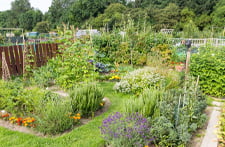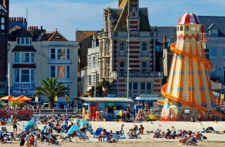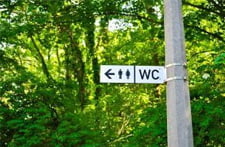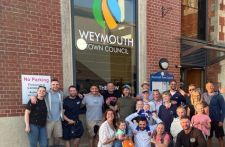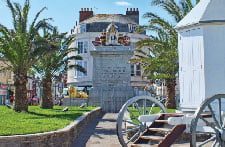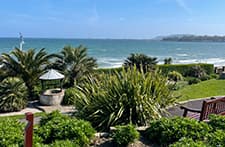More councils sign open letter on inequality of carer allowances
Representatives from councils in Chippenham in Wiltshire, and Huntingdon in Cambridgeshire have signed an open letter calling on the Government to end an inequality that makes it more difficult for carers to become town and parish councillors.
Cllr Phil Pearce, Town Mayor, Huntingdon, Cllr Pete Cousins, Leader of Chippenham Town Council, and Mark Smith, Chief Executive at Chippenham Town Council are the latest to add their names to a letter put together by Weymouth Town Council launched to coincide with Carers Rights Day, Thursday 23rd November.
Councils, Mayors, Council Leaders, a national charity, and a baroness are among the signatories hoping to draw attention to ‘a bizarre inequality that makes it difficult for carers to represent their communities as councillors on parish and town councils’, says Jane Biscombe, Town Clerk at Weymouth Town Council.
In the open letter below they say: “We call on the Government to change the legislation now so that many more carers can consider standing as candidates in next May’s local elections.”
The Mayor of Weymouth, Cllr Kate Wheller, representatives from councils in Corsham, Dunstable, Falmouth, Harpenden, Henley, Huntingdon, Newport Pagnell, Peterlee, Sevenoaks, Stroud, Swanage, Trowbridge, Ware and Witney, national charity Carers UK, Baroness Scott of Needham Market, all came together to shine a light on this inequality in the hope that the current Government will take action.
What is the inequality?
In England, borough, district, county, and unitary councillors can all claim expenses to support the cost of childcare or care for a relative or someone they live with, while they’re carrying out council duties. But town and parish councillors cannot.
Weymouth Town Council Clerk Jane Biscombe thanked all the signatories for lending their support to the campaign, adding: “Government legislation* doesn’t allow councils at this tier of local government to pay these expenses. A lack of effective support can make it impossible for carers to juggle caring responsibilities with work and other commitments, let alone take on the role of a councillor. As carers often feel invisible, overlooked, and discriminated against, this legislation is denying them a voice. This is unfair, and it’s undemocratic.
“All we ask is that just five words ‘and Parish and Town Councils’ are added to the legislation. This small but significant change would mean so much to carers who could consider standing as a councillor next May, or even reconsider stepping down because they know there will be more support in place to carry out this vital community role. Is that too much to ask to ensure equality and respect for carers up and down the country?”
Baroness Scott of Needham Market, President, National Association of Local Councils, said: “It simply cannot be right that unlike every other councillor in England and Wales, parish and town councillors are specifically excluded from being able to access help with childcare costs to attend meetings and perform their duties.
“The National Association of Local Councils has long called for an end to this inequality and to make it easier, not harder, for people from a wide range of backgrounds to get involved in their communities as parish and town councillors.
“I have spoken out strongly on this issue in Parliament and will continue to do so at every opportunity I get. It is simply time to right this wrong, to level up local democracy, and to give those thousands of parish and town councillors who have caring responsibilities just a little bit of much needed help to perform their important civic role.”
In November 2019 Weymouth Town Council issued a challenge to the Government to end this inequality, under the Sustainable Communities Act (SCA). Carers are still waiting for a resolution some four years later.
Open letter with full list of signatories:



